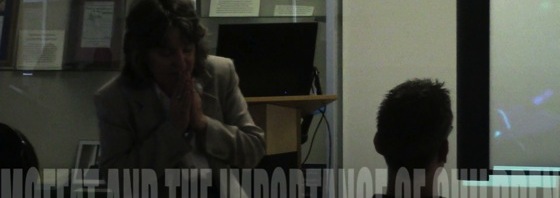A short clip from the longer presentation, “Doctor Who Regenerated”
Dr. Rosanne Welch, Cal Poly Pomona Faculty from the Department of Interdisciplinary General Education is back by popular demand with a new lecture on Doctor Who and Television!
This time, the Doctor will focus on a deeper look of the themes of the writers behind “Doctor Who.” Above and beyond race and gender, they include social justice and the power of childhood.
Subscribe to Dr. Welch’s YouTube Channel
Transcript:
Now the other thing I think Steven does a really interesting job of is looking at the world through children’s eyes and treating children as very important creatures. Now, especially in a show originally geared for children. he’s now using the children a major, major characters. Obviously, when we meet Amy Pond, we meet her at the age of 7. We don’t meet her as a grownup. He does that marvelous time travel hopping that no other writer did before. I do believe Steven plays with the concept of the show much better. He allows this — if you could time travel wouldn’t you go back and tell yourself not to date that jerk? Why would you not use the…really? So he allows his characters to do this, but it’s significant in the very first episode that Matt Smith is introduced to us, he meets Amy as a child and he promises the child that he will take her on a trip around the world and to see the universe. Then, it’s his own miscalculation that he shows back up and she’s already 24 years old, but he plays with the necessary considerations that should be made to children. And I think that is a very interesting aspect of his writing.
“Natalie Lopez at the CalPoly University Library invited me to do a presentation for National Libraries Week on Doctor Who and Culture so that’s why a group of Whovians from both CalPoly and CSUF gathered in the Special Events room on April 16th. It was wonderful to look out over a sea of t-shirts and other Doctor paraphernalia present among the crowd as I pontificated about what makes Who great – mostly giving me a chance to present a case for the fact that writers make Doctor Who and therefore writers make culture.”

